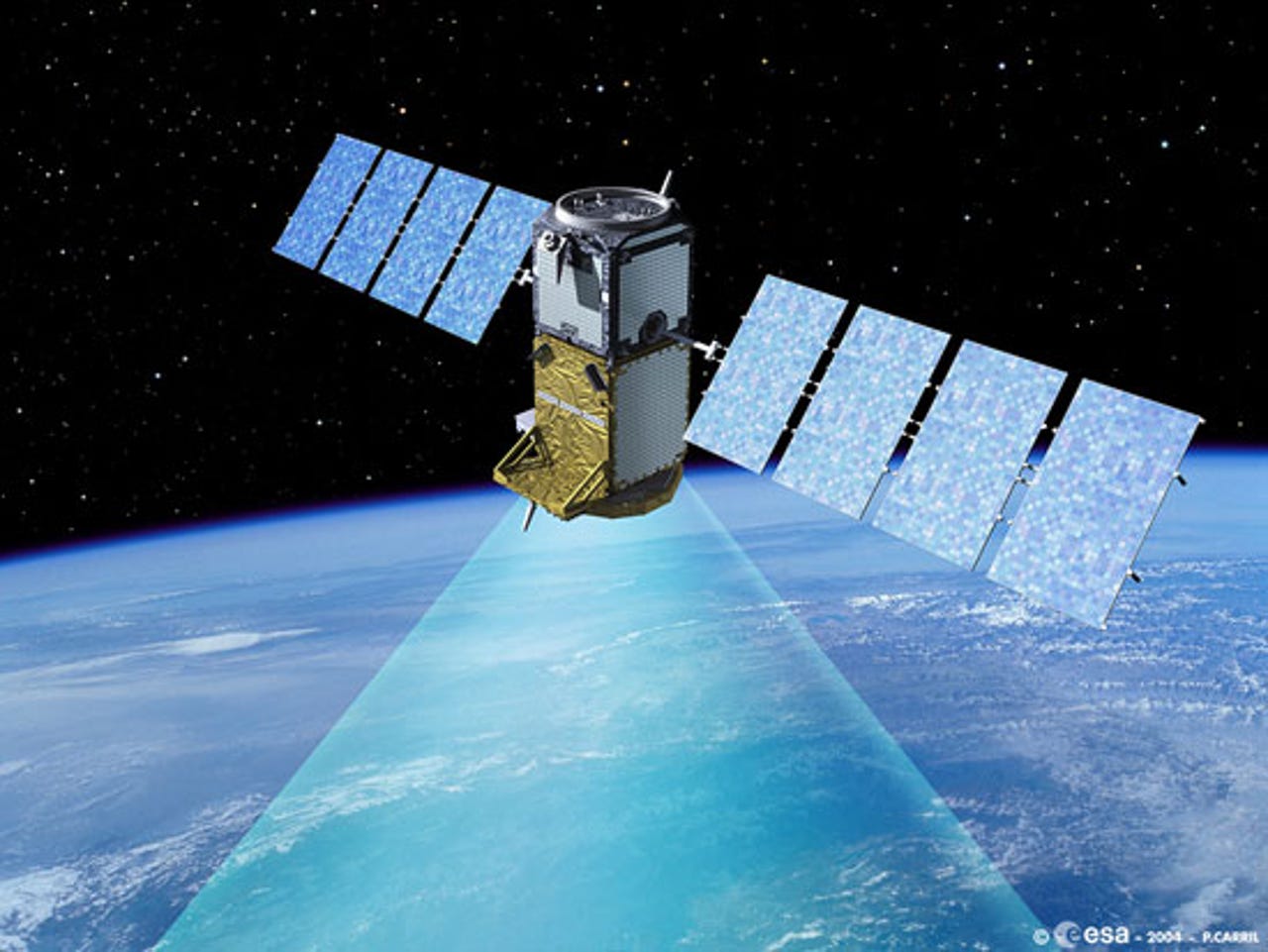Images: Europe's GPS rival
European Space Agency says Galileo navigation satellites will be five times more accurate than United States' system.


1 of 3 Bill Detwiler/ZDNET
Galileo
The European Union launched its first Galileo navigation satellite, the Giove-A, on Dec. 28 in a program to end Europe's reliance on the United States' Global Positioning System, or GPS.
The European system, which is expected to go into service in 2008, aims to have an accuracy of 3 feet or less--five times better than the current GPS system.
Cornell University researchers said this week that they've cracked the codes used by the Giove-A, raising questions as to whether the European Space Agency project will be economically viable. But EU officials said the intercepted signals are neither final nor secret.
2 of 3 Bill Detwiler/ZDNET
game plan
The fully deployed Galileo system planned will consist of 30 satellites, positioned in three circular Medium Earth Orbit planes.
3 of 3 Bill Detwiler/ZDNET
launch pad
The 1,300-pound Giove-A satellite was launched on a Soyuz rocket from the Baikonur cosmodrome in the middle of Kazakhstan's steppe.
Related Galleries
Holiday wallpaper for your phone: Christmas, Hanukkah, New Year's, and winter scenes
![Holiday lights in Central Park background]()
Related Galleries
Holiday wallpaper for your phone: Christmas, Hanukkah, New Year's, and winter scenes
21 Photos
Winter backgrounds for your next virtual meeting
![Wooden lodge in pine forest with heavy snow reflection on Lake O'hara at Yoho national park]()
Related Galleries
Winter backgrounds for your next virtual meeting
21 Photos
Holiday backgrounds for Zoom: Christmas cheer, New Year's Eve, Hanukkah and winter scenes
![3D Rendering Christmas interior]()
Related Galleries
Holiday backgrounds for Zoom: Christmas cheer, New Year's Eve, Hanukkah and winter scenes
21 Photos
Hyundai Ioniq 5 and Kia EV6: Electric vehicle extravaganza
![img-8825]()
Related Galleries
Hyundai Ioniq 5 and Kia EV6: Electric vehicle extravaganza
26 Photos
A weekend with Google's Chrome OS Flex
![img-9792-2]()
Related Galleries
A weekend with Google's Chrome OS Flex
22 Photos
Cybersecurity flaws, customer experiences, smartphone losses, and more: ZDNet's research roundup
![shutterstock-1024665187.jpg]()
Related Galleries
Cybersecurity flaws, customer experiences, smartphone losses, and more: ZDNet's research roundup
8 Photos
Inside a fake $20 '16TB external M.2 SSD'
![Full of promises!]()